ENGAGEMENT SPOTLIGHT
WITH SCOTT THEENER
Every organization we work with was deeply impacted by the COVID pandemic. Care for people, economics, health and safety: every company and organization has had to adapt to a very different set of priorities.
In the thick of the pandemic lockdowns, leading up to certain businesses opening back up, a multi-campus community college came to TGG asking if we could help solve a problem that had no pre-fab solution.
New state and federal health and safety protocols required the Auditing Team team to quickly react, building new campus regulations resulting in an exponential increase in procedural tracking, documentation, and compliance reporting.
I worked with our client to track the ever-changing regulations in order to develop a method to integrate the changes into scalable processes. The engagement was successful, and engaging for the whole team because there was a vision for the future.
To begin, I had introductory sessions individually with all team members to learn what was going well and what they felt could be improved. This helped inform a prioritized list of opportunities that we could start working on. We identified opportunities to implement automation and create recurring collaboration sessions where the team drove their own solutions to group challenges, rather than deferring only to management guidance.
TGG then supported this process by performing a gap analysis of the state and federal regulation changes and creating easy to consume documents for interested parties. These analysis documents took hundreds of pages of regulation and distilled them into language that increased awareness and increased understanding of the changes. This allowed staff and faculty to quickly create health and safety plans for their colleges that ensure compliance with the regulations while also creating safer environments.
I also facilitated multiple sessions with the team to ensure new regulations were accounted for in the organization’s processes and the team felt confident the processes could continue the work.
By design, my primary function in these sessions was to ask questions to the team, usually without knowing the answer. The intention was to utilize “the wisdom of the crowd”. This philosophy states that the collection of wisdom from the people doing the work is the best way to improve and solve that team’s challenges.
Another goal we established for this engagement was to help the team become more “T-Shaped”. Each team member had a specialty and expertise they brought to the team (the vertical bar of the T) while the horizontal bar of the T represents the knowledge they gain by learning about and exercises the expertise of their teammates. While being an expert in a particular discipline or field ensures the team has a wide range of skills, a teammate who is interested in learning new skills from their colleagues, helps to expand the shared understanding of the team as a whole. For example, one result of this effort and focus was that everyone on the team expanded their data analysis and spreadsheet skills.
The final piece of the project was helping the client to level-up and automate their data collection and analysis tools. Helping the client improve their data maturity and strategic data use, helped deliver efficiencies and insights that allowed the team to focus on areas that needed more attention.
As I reflect back on this engagement, the most rewarding component of the work was knowing that the team’s investment in becoming self-organized and deeply collaborative truly helped keep staff, faculty, and students at the campuses safe and healthy. We delivered real, tangible outcomes.
The community college is now well-positioned to continue monitoring for regulation compliance, via data analysis and metrics, to help departments enable health and safety best practices. We helped deliver a safer learning and working environment for students and faculty throughout the institution. The Health & Safety team has new found confidence in their collaboration skills, preparing systems and processes, and the tools needed to successfully complete a health and safety project of this magnitude.
When I look ahead to supporting other clients in the future, I’ll be able to use this experience to advocate for the power and opportunities that data analysis and metrics provide teams, the unlocking of potential when a team sees each other as equals and values collaborations with each other, and that communicating with your partners and stakeholders with transparency and honesty is truly a non-negotiable of success.

Scott has 10 years of dedicated experience as an Agile practitioner, Scrum Master, and Product Manager coaching teams, mentoring new Agilists, and leading successful projects. With his high attention to detail and a passion for independent research and translating findings into compelling visual presentations, Scott excels at change management, team facilitation, and emotional intelligence. He is known for being a natural detective and storyteller who is committed, organized, and a responsible teammate that prioritizes consensus and transparency in all situations. Scott holds a B.A. in Mass Communication/Journalism from Boise State University. He is also a Certified SAFe 5 Agilist, Advanced Scrum Master, Scrum Master, and Product Owner. Outside of work, Scott loves exploring Oregon’s great outdoors and is an avid college football fan who loves rooting for his Boise State Broncos. He also loves Portland’s independent theaters such as Laurelhurst Theater, Hollywood Theater, and Cinema 21.
COMMUNITY SPOTLIGHT:
MADDIE BARBERA
Today we take a moment and celebrate TGGer Maddie Barbera’s community support for her generous work assisting with COVID-19 vaccine outreach among vulnerable populations in our local communities.
Prior to her career as a consultant, Maddie practiced as a pediatric nurse for 12 years and has been a licensed nurse for the past 17 years.
Maddie often volunteers with the Red Cross of Oregon and in 2020 at the start of the COVID-19 pandemic, she signed up to volunteer with Serve Oregon as part of the Medical Reserve Corp.
Asked why she wanted to lend her experience to these organizations, Maddie said “I’ve always kept my nursing license active so I could be in a position to help if there were ever emergencies in the community. For me it’s a direct way to support medical professionals, local citizens, and community health needs in the state.”
When Maddie received an email from Multnomah County inquiring about licensed medical officials willing to help administer COVID-19 vaccines to medically vulnerable populations and populations with socioeconomic barriers, she had no hesitation. Maddie saw an opportunity to lend her experience to the vaccine workforce and responded immediately.
Maddie said, “the most rewarding aspect of the vaccine outreach and administration has been hearing patients’ stories of perseverance from the past year and their continued hope.”
“People have been so appreciative of the medical officials and teams. At times it’s even been an emotional experience for everyone involved because the community member is so grateful for the opportunity and the team’s outreach and personal service to them.”
We appreciate and applaud Maddie’s commitment to the community and for assisting the state’s most vulnerable populations.
We are honored and proud to call her our teammate!
PRESSING PLAY ON PAUSED PROJECTS IN THE COVID-19 ERA
Since March, the COVID-19 pandemic has changed the way we work, the way we live, and the way we interact with the world. To cope with these widespread changes, organizations have had to make tough choices and “hit the pause button”, delaying projects and strategic initiatives.
We are now seeing enterprises reinstating their paused projects and initiatives, but in a changed world where challenges such as limited and/or remote staff, constrained budgets, and emerging competing priorities need to be factored into the mix. Organizations need to relaunch project work in a strategic way that accounts for today’s ever-changing business climate as well as the increased pressure employees are facing while navigating the complex COVID era.
Before deciding to restart a project, consider the following questions:
1. Are there environmental, emotional, or other considerations that should be taken into account before kicking off this project again?
2. Is the project still relevant and does it represent a productive use of time?
3. Staffing levels may have been impacted. Team members may be overwhelmed with competing priorities. Does the organization have adequate staffing and resourcing for this project or is there a need to secure outside assistance to support internal staff?
4. Does this project provide clear benefits regardless of possible uncertainty in the future?
5. Are there risks and costs to the organization by further delaying the project?
Strategies for moving forward
Applying a comprehensive strategic framework to think through the complex logistical, financial, and human components of the project can help an organization ensure multiple angles have been considered before moving forward with stalled projects.
The steps outlined here are relevant for any project initiation, but it’s particularly crucial now to make sure that the organization is fully prepared to launch an initiative in a thoughtful and informed way.
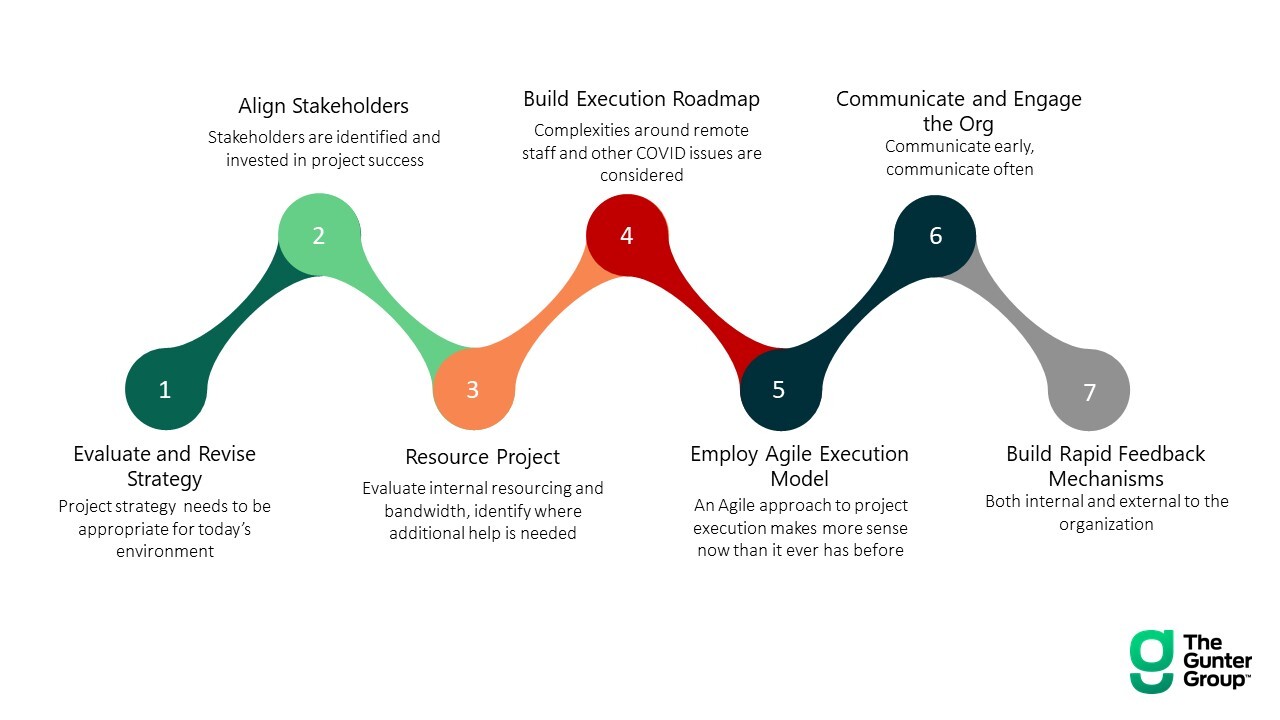
Evaluate and Revise Strategy: As our global situation evolves, public health policies enacted to mitigate the effects of COVID-19 will impact the availability of resources and timing of many projects.
Additionally, it is important to re-evaluate the big questions—those considerations that are less tactical and for which planning is more difficult. How does this project align with the organization’s core values, and are those values changing in response to the impacts of COVID-19?
Lastly, there may be tactical components of the original project strategy that may not be conducive to a COVID-19 environment. For example, brainstorm sessions, project meetings, and testing will likely take place remotely. Timeline and toolset considerations may also need to be adjusted.
Align Stakeholders: Even in the best of times, projects often begin prematurely, before stakeholder alignment is adequately reached. Now more than ever, it is imperative for the success of any reinstated work that stakeholders are informed, aligned, and have a renewed commitment to contribute towards the successful culmination of the project. As appropriate, leaders should seek to foster stakeholder participation and feedback in the prioritization process to align on the purpose of the project and to provide consistent messaging to employees and consumers. Commence replanning efforts by conducting a stakeholder analysis and integrating the findings. Overlooking this vital step could result in major roadblocks and setbacks throughout the remaining life of the project.
Resource Project: The resources originally allocated for the project may now be unavailable, team members may lack required skill sets, or they may not currently have the bandwidth to contribute to another project. Therefore, the need for both external and internal support should be properly assessed.
Recently, McKinsey & Company emphasized the need for leaders to focus on reskilling and upskilling their workforce to deliver new business models in the post-pandemic era. Companies also face a learning curve as managers figure out how to lead their teams virtually, build social capital, and maintain cohesion without the benefit of in-person interactions. As companies contemplate returning to the workplace, a new set of skills is also likely to emerge for the transition.
Sometimes a major reskilling effort isn’t feasible or practical to fill key needs for a project. In this scenario, pulling in outside expertise or resources may be the best option. Consultants are often brought into the fold of a project to fill an experience, knowledge, or skill set gap or even as an extra set of hands for a daunting effort where the organization’s future hiring picture is unclear.
Build Execution Roadmap: As things continue to change, a well developed and clearly communicated execution roadmap will help keep the project team’s eye on the prize. The steps taken so far in restarting the project—updated strategy, aligned and informed stakeholders, and prepared project resources—are the building blocks of an execution roadmap. Identify where it is possible to include flexibility points in an execution strategy. Planning for potential changes to “Plan A” will allow for an easier path forward if additional unexpected changes occur in the life of the project.
Employ Agile Execution Model: There’s no better time than now to embrace an agile methodology. By definition, the agile project management methodology is designed to be collaborative, flexible, and adaptable to change, and the change introduced to organizations by COVID-19 has put it to the ultimate test. Research conducted by McKinsey & Company found that companies with agile practices embedded in their operating models have managed the impact of the COVID-19 crisis better than their non-agile counterparts.
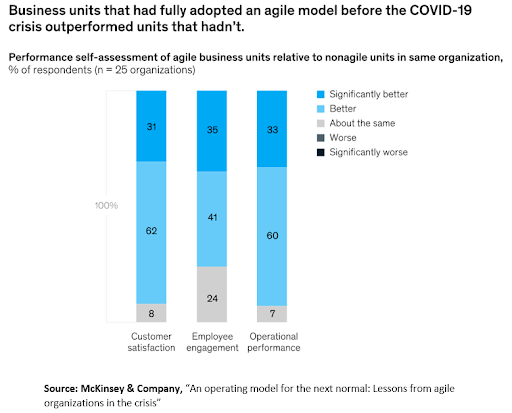
Communicate and Engage the Org: Effective communication and engagement can be challenging, especially given the challenges of physical distance, work-life balance, and a multitude of other distractions. Project details must be communicated to the right people at the right time.
Many organizations are also at the point where employees are hitting conference call and email fatigue. Since the majority of our communications are now limited to back-to-back video calls or an ever-expanding email inbox, communications are at greater risk of being lost in the shuffle.
Fortunately, there are many tools and resources available to help streamline communications in 2020, some of which may already be familiar and some lesser known:
– Facilitation tools (MURAL, retrium, MS Teams, klaxon, miro, STORMZ)
– Communication tools (Skype, Zoom, Google Hangouts)
– Presentations & Meetings (Ideaboardz, Conceptboard, workplace, slack, Google Meet)
– Project Management (Smartsheet, Microsoft Planner, Teamwork, Confluence, Jira, Basecamp, Trello, asana, N)
– Team Building (Kahoot!, TEAM MOOD, Dr. Clue, donut)
– Events (Meetyoo, HEXAFAIR, ENGAGE, VIRTUALIST
Build Rapid Feedback Mechanisms: Integrating feedback loops, both internal and external, into the project’s workflow, such as cadences in the Kanban method, for example, offer a powerful communication tool that fosters efficient and continuous improvement through effective adaptation to the often evolving needs of one’s client. It is valuable to build a mechanism, such as frequent, effective meetings, to facilitate constant and constructive evaluation as a team.
Moving forward with grace
With all the tactical and strategic planning that is needed to evolve an organization or advance a project forward, it is important not to lose sight of the human element. The planning process should be imbued with emotional intelligence, described as the ability to appropriately apply emotion to manage and solve problems—an approach with many tangible and far-reaching benefits within any organization.
In many different ways, it has been a challenging year and people are facing internal and external hurdles that could not have been predicted a year ago. Contributing to a project is a wonderful growth opportunity, gives people a chance to connect with their teammates towards a common goal, and produces tangible results. However, it is more important than ever for leaders to show that they care about their team.
Deeply considering the outcome of new or restarted work on employees and consumers has never been more important. Prioritizing the work ahead should consider not only the immediate benefit to the organization itself but also the benefits of doing right by the people of the organization in the long term.
At The Gunter Group, we can help implement the project leadership and process improvement strategies discussed above. Contact us to learn more about how we can support and optimize your organization.

About the Author:
Kara is a collaborative and detail-oriented consultant specializing in project management, organizational change and strategic communications. She has an ability to jump quickly into complex situations and scenarios, which allows her to understand and deliver on her clients’ key priorities within tight deadlines. Kara is also very skilled at considering issues with a fresh perspective, allowing her to suggest and implement viable solutions that may not have been previously considered by an organization. With a diverse background in communications, marketing analytics, team leadership and project management, Kara has enjoyed bringing strategic solutions to her clients for over 10 years. She has worked in a wide range of industries for many nationally-recognized brands, primarily in the technology, healthcare, sportswear, and early childhood education sectors. Kara holds a B.S in Business Administration and Marketing from Central Washington University. She is also a Certified Scrum Master and PROSCI Certified Change Practitioner. In her free time, Kara enjoys spending time in the great outdoors with her family of four.
REFLECTIONS ON CHANGE MANAGEMENT IN UNCERTAIN TIMES
The Gunter Group hosted the ACMP Pacific Northwest chapter’s monthly Coffee Chats in April, May, and June. Just as everyone was figuring out how to deal with so many things changing, we facilitated a three-part webinar series entitled ‘Reflections on Change Management in Uncertain Times’. The conversations were timely but the change lessons we learned are timeless.
Afterward we sat down with our host, Stephen Bacon, to get his perspective on how to navigate through large-scale change.
In case you missed the webinar series, you can view replays here:
Part 1: How Things Have Been Disrupted
Part 2: How We Are Adapting
Part 3: What We Are Learning
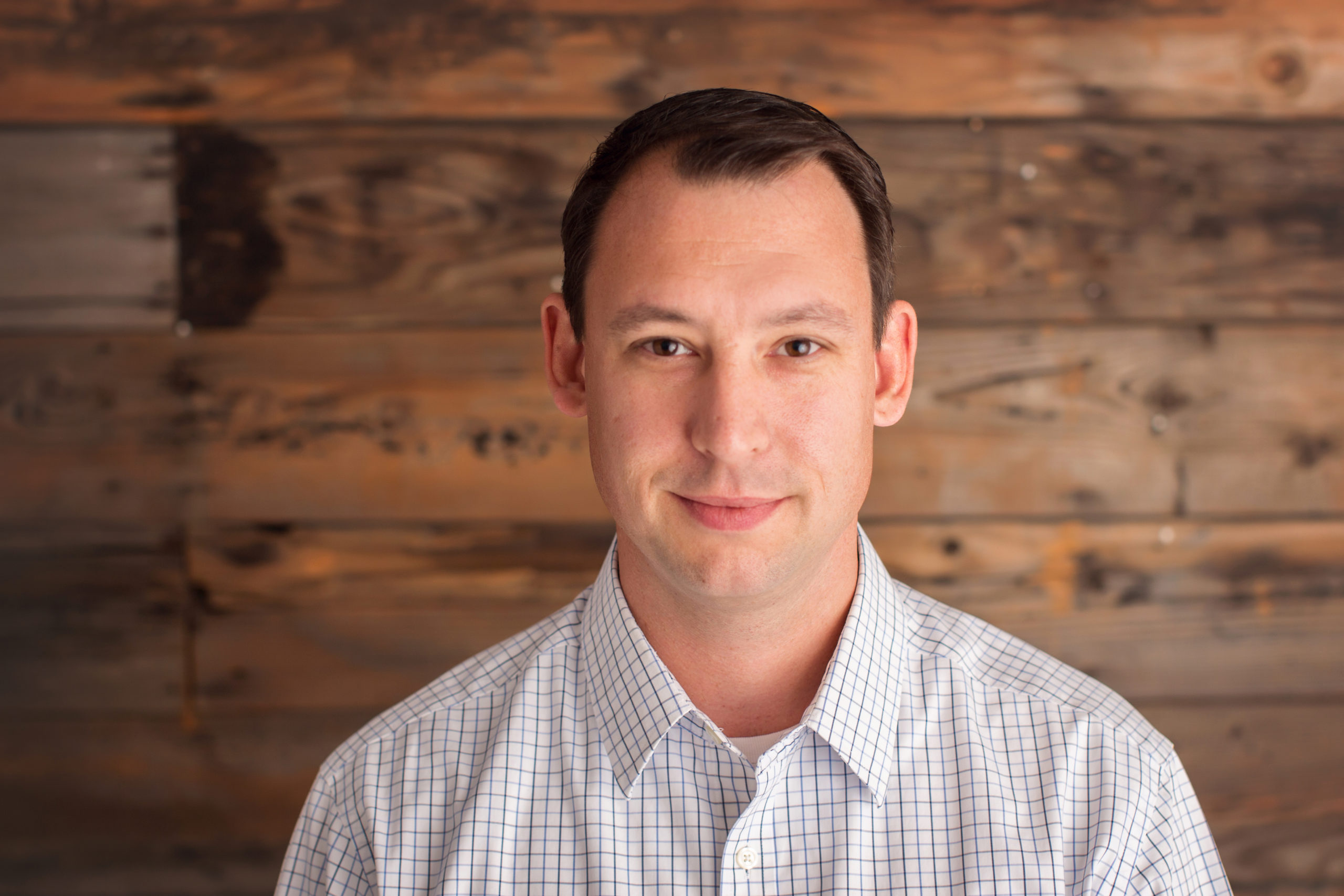
More about Stephen Bacon:
Stephen is passionate about understanding the overarching strategic goals of an organization and leading the changes that are so often necessary to implement those strategies. His expertise is managing strategy and change projects across a variety of organizations. Stephen has spent twenty years leading initiatives at Fortune 500 companies, academic institutions and not-for-profits in the education services, technology, financial services, consumer products, and healthcare industries, including extensive international experience. Stephen is a Certified Associate in Project Management (CAPM), holds a green belt in Six Sigma, and is accredited in various psychometric assessments (MBTI, ESCI, NBI). He holds a B.S. in finance and marketing from Boston College and an M.A. in organizational psychology from Columbia University. In addition to his service on not-for-profit boards, Stephen has three young children and a chocolate lab. He lives and works in Portland, Oregon.
REFLECTIONS ON CHANGE MANAGEMENT IN UNCERTAIN TIMES: PART THREE
Part 3 (of 3): What will we carry forward?
We completed the last session of our series with ACMP Pacific Northwest — ‘Reflections on Change Management in Uncertain Times’. Thank you again to ACMP for the opportunity to facilitate this important conversation.
Part 1 of the series was about how things have been disrupted, Part 2 was about how we are adapting, and in Part 3 we had a very open conversation about what we are learning.
This conversation was very candid and we highly encourage you to watch the replay. Some highlights of our discussion were around
– The importance of vulnerability and connection during this time
– Staying curious and humble in our learnings
– Not attempting to continue business “as usual”
– Creating new normals in our work environments
– Being a present listener and practicing empathy
A replay of our June discussion is now available and we encourage you to listen in on this collaborative information sharing!
Hosted by:
Stephen Bacon
Senior Consultant
The Gunter Group
TGG HOSTS ACMP’S JUNE COFFEE CHAT
On June 12th, we’ll wrap up our three-part series around ‘Reflections on Change Management in Uncertain Times’ with ACMP Pacific Northwest.
In April, we discussed what has been disrupted due to COVID-19. In May, we discussed how we are adapting to the changes. In June, we’ll look ahead to what we will carry forward.
This month, we look forward to discussing questions like:
– What has forever changed in the way we work?
– What DON’T we want to go “back to normal?”
– What will the “new normal” look like?
We encourage you to consider these topics ahead of time as this will be an interactive discussion.
REGISTER NOW to join us on June 12th at 9am PDT as we finish out this series!
REFLECTIONS ON CHANGE MANAGEMENT IN UNCERTAIN TIMES: PART TWO
Part 2 (of 3): How are we adapting
We hope you are enjoying our series around ‘Reflections on Change Management in Uncertain Times’. Thank you to ACMP Pacific Northwest for the opportunity to facilitate this important conversation.
During our Part 1 discussion in April, we talked about how things have been disrupted and you can view a reply of that conversation here.
In Part 2, this month, we discussed how we are adapting and some key learnings out of our conversation were:
– We’re moving beyond the “how are you” platitudes
– Video call fatigue is real and we are navigating that together
– Communicating more than you think you need to is probably the right amount
– We are seeing more agile thinking from leaders
– It’s not a given that we will learn from this—we need to keep talking about it
A replay of our May discussion is now available and we encourage you to listen in on this collaborative information sharing!
Be sure to join us for the last conversation of the series (Part 3, June 12th @ 9AM PDT) when we’ll discuss what we are carrying forward. Watch Now
Hosted by:
Stephen Bacon
Senior Consultant
The Gunter Group
LEADING THROUGH CRISIS, OUR VETERANS’ PERSPECTIVE
At The Gunter Group, we are fortunate to have several military veterans on our team who have deep experience leading in times of crisis. They sat down with one of our consultants, Laura Emily, for a conversation about how they are leaning on their backgrounds in the service to navigate our current environment.
We invite you to join us for this rich discussion on the parallels between leading in a warzone or humanitarian environment and leading in a business environment impacted by the coronavirus. Read on below to learn more about each speaker and the leadership topics they cover in the video.
Oregon Market Lead and Principal Consultant
Served 5 years as a Captain in the Air Force
Listen to Matt speak about “Balancing Compassion With Accomplishing a Mission
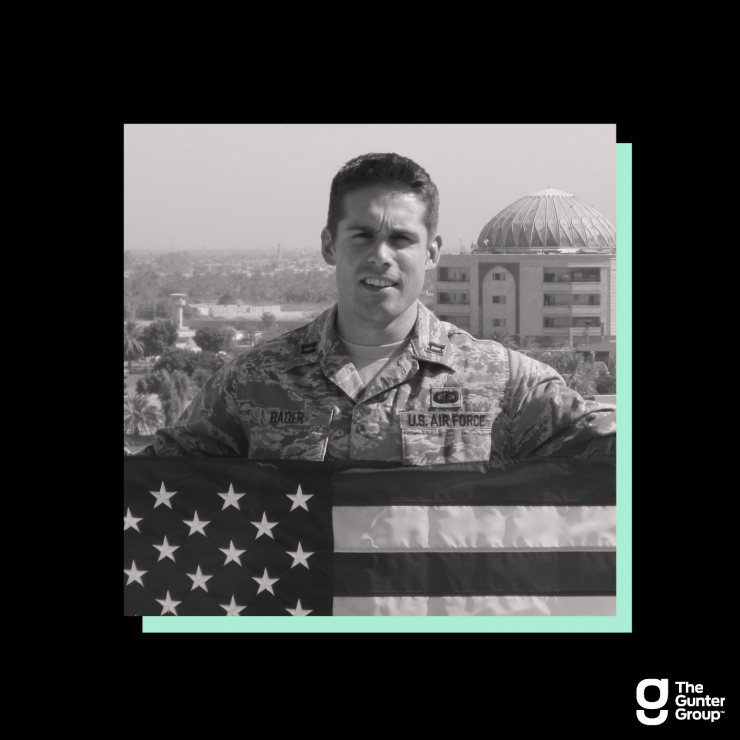
Matt’s passion and leadership purpose is all about helping teams reach their highest potential. He loves building and leading high-performing teams and seeing what can be accomplished when strong values, sound strategy, and a relentless commitment to execution collide. He is a trusted advisor that thrives on building lasting partnerships and driving high-quality solutions for clients. As a results-driven leader with more than 14 years of leadership, strategy, project management, and process improvement experience in a wide variety of complex environments, Matt brings a deep knowledge of implementing enterprise-wide transformations across people, process, and technology domains. He has built and led multifunctional teams to deliver successful solutions in a number of industries to include: retail, education, financial services, healthcare, and government. Matt graduated from the United States Air Force Academy with a B.S. in business management in 2006 and has certifications in program management, LEAN, and contract management. He has spent the majority of his academic, military, and consulting career studying and employing character-based leadership principles in challenging and ambiguous environments. Outside of being a loving husband and father, Matt enjoys the intersection of all things hockey, heavy metal, fitness, and beer.
Northern Nevada Market Lead and Principal Consultant
Served 4 years as a Lieutenant in the Navy
Listen to Tony speak about “Resiliency During Crisis”
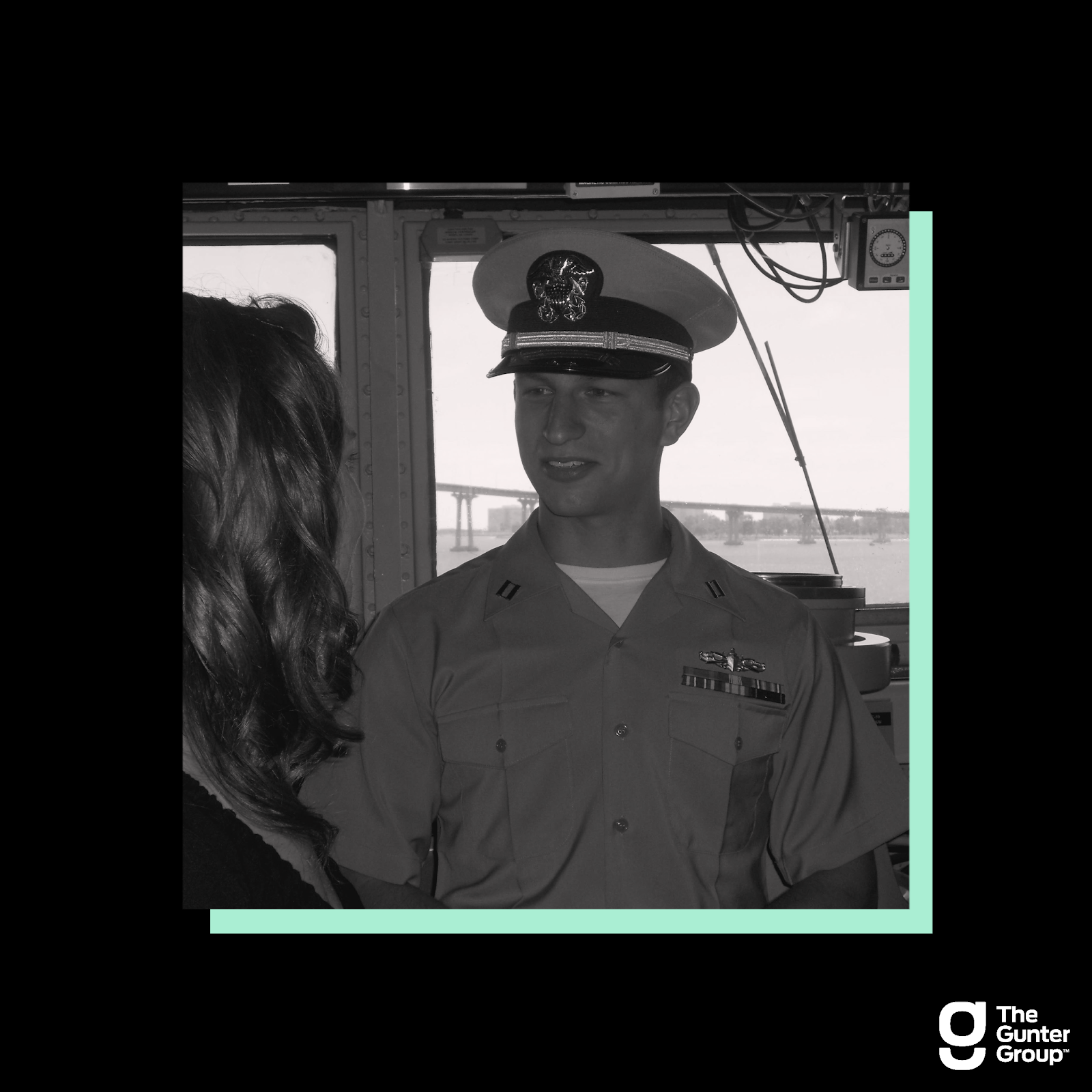
Tony builds teams to support strategic change initiatives and helps leaders plan for highly impactful change. Thriving in the face of complex problems, he brings clarity to ambiguous situations and organizational questions. Leaders quickly come to trust Tony as a partner in making their tough decisions. A former Surface Warfare Officer in the U.S. Navy, Tony’s leadership and management philosophy is tempered by a career of bringing calm and planning to high-impact, high-stress scenarios. His track record of success in defining and overcoming challenges in demanding environments has led to consistent portrayals of him as an outstanding manager and a leader among his peers. His skill set is under-girded by his formal education in the Humanities, holding a Bachelors Honors degree in both philosophy and theology from the University of Notre Dame. In addition to an aggressive reading habit, Tony is deeply interested in everything that the Sierra Nevada mountains have to offer. Sun, snow, backpacking, and skiing all keep him, his wife, and kids busy in their free time.
Senior Consultant
Served 6 years as a Captain in the Air Force
Listen to Noah speak about “Maintaining Confidence, Connection, and Healthy Habits”
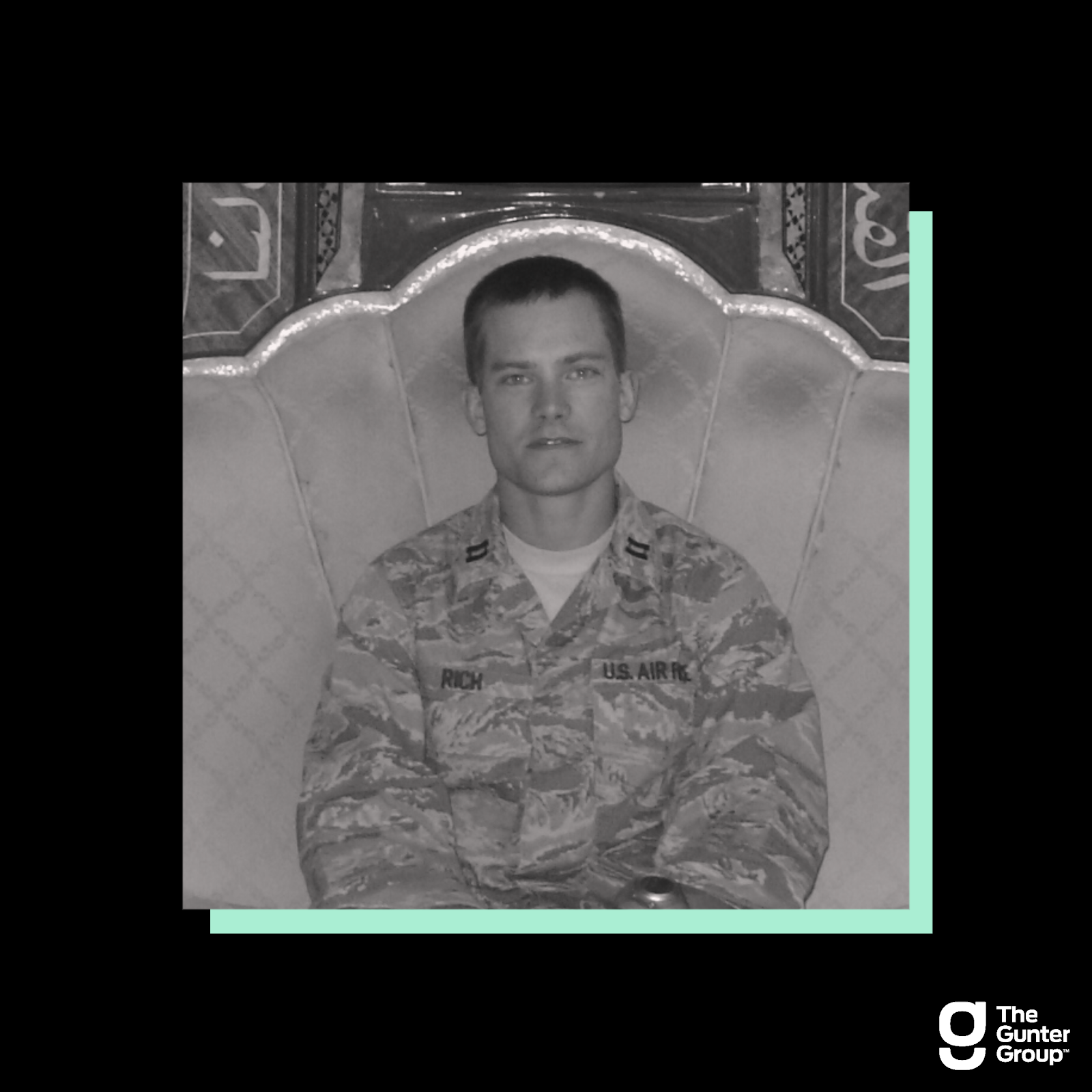
Noah has a clear record of success in driving strategic initiatives across a broad spectrum of industries and business functions. Curious by nature, Noah is able to quickly develop a deep understanding of business problems, develop structured plans, and manage teams to deliver positive results. Noah’s professional experience includes work in government, IT, finance, insurance, manufacturing, construction, health care, education, and international business. He holds a M.B.A from the University of Colorado and a B.S. in meteorology from the U.S. Air Force Academy. Outside of work, Noah spends more time than he should cycling around Oregon.
Account Lead and Senior Consultant
Served 7 years active duty and 3 years in the reserves as a Major in the Marine Corps
Listen to Joe speak about “Maintaining Momentum”
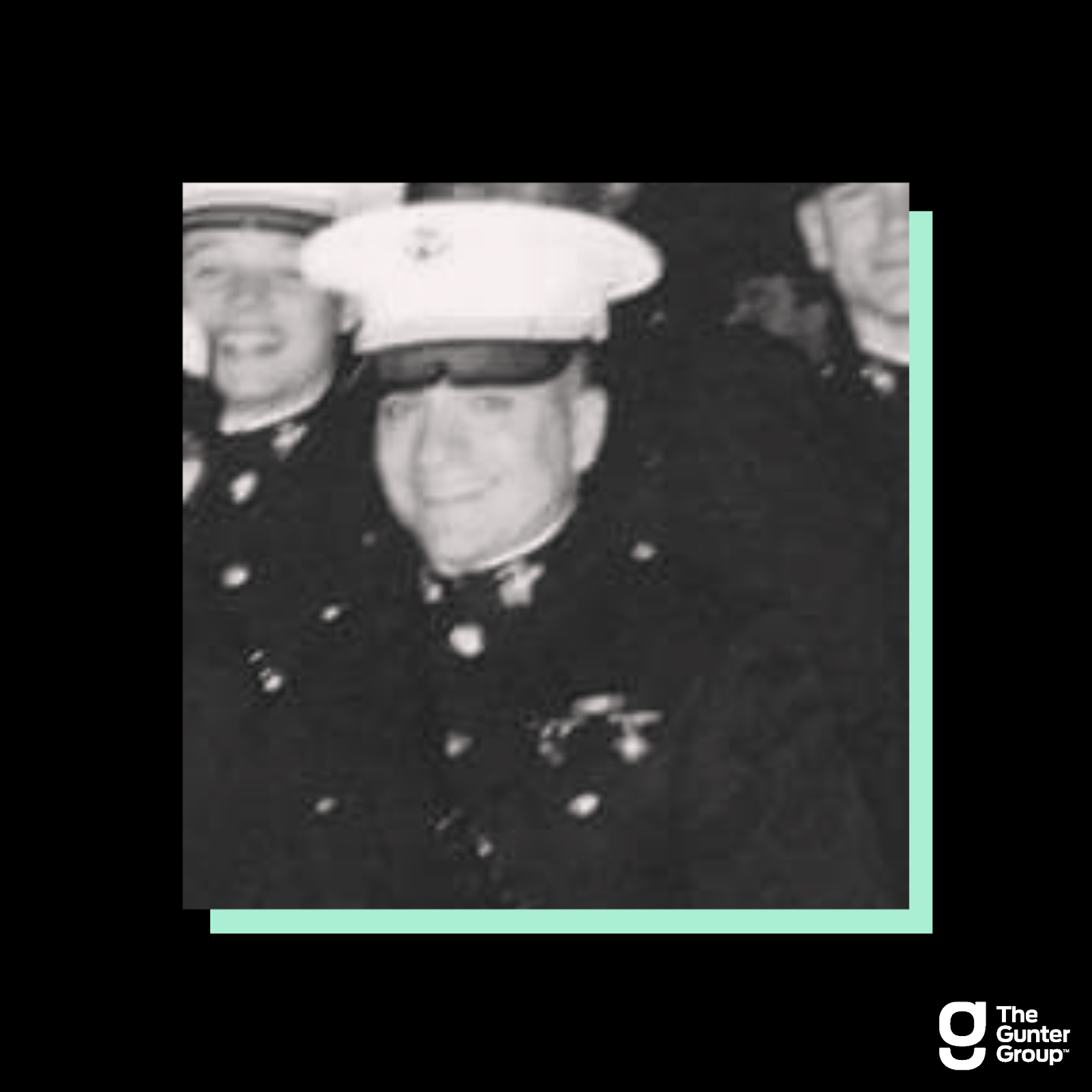
Joseph thrives in digital product and marketing management because of his affinity for analytics and the relative immediacy of data-driven change. Whether managing a host of agencies, internal teams or directly implementing strategies and tactics, he has a wealth of experience bringing products and projects to market. Joseph has more than 15 years experience leading teams, serving in product management, marketing, commercial operations and other roles in the consumer, pharma, life science and technology industries. Whether leading startups to profitable operations or managing multi-million dollar omni-channel marketing budgets, Joseph has demonstrated a path to success, regardless of scale. He earned an M.B.A in marketing from the University of Virginia’s Darden School of Business. Outside of work, Joe is manifesting patience and unconditional love with his two teenage children. On weekends, look for Joseph in the backcountry of the Cascades, cooking for a cycling camp or racing cyclocross.
Account Lead and Senior Consultant
Served 5.5 years as a Captain in the Army
Listen to Jim speak about “Building Your Team”
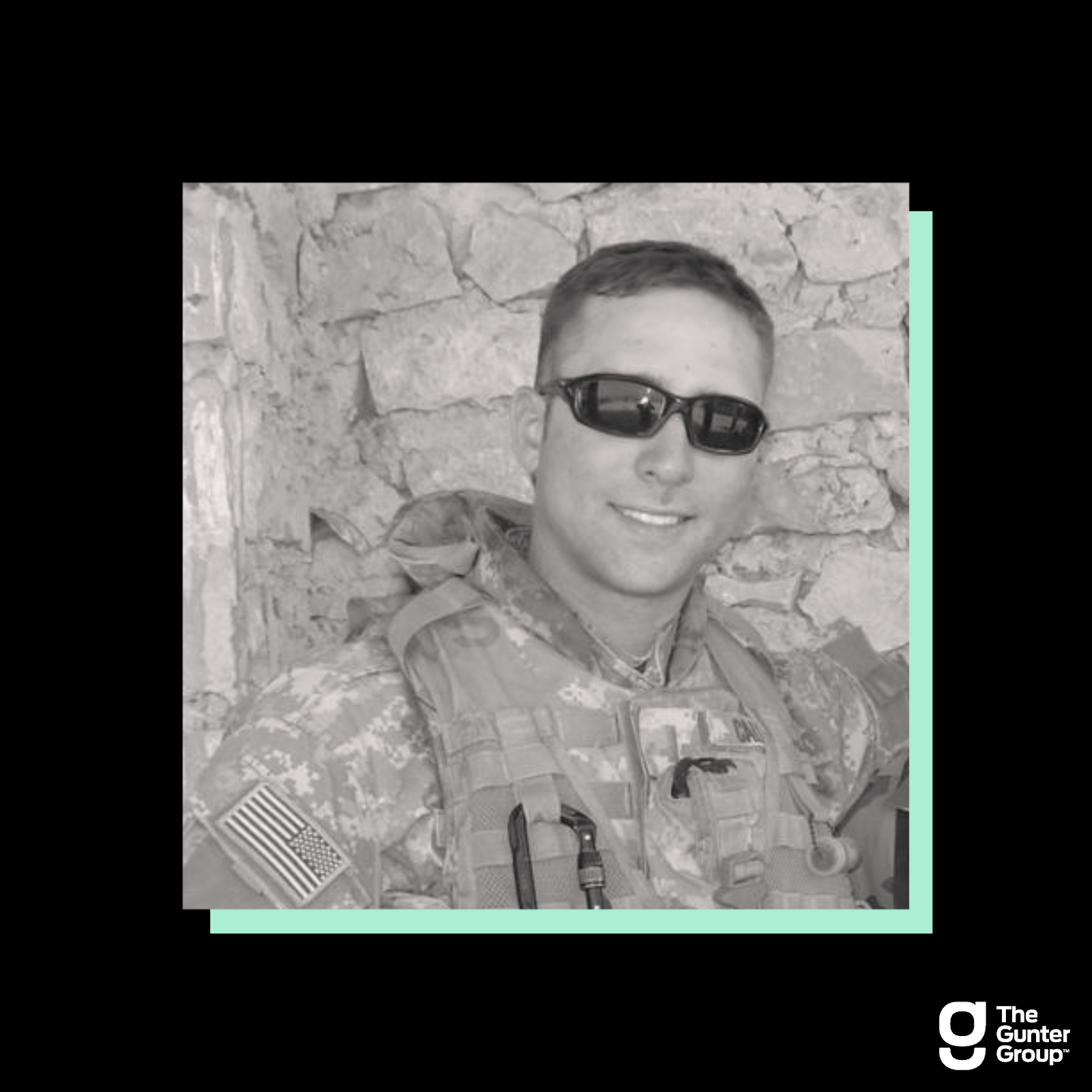
Jim’s collaborative, servant leader approach has earned him the reputation of being a problem solver who consistently gets things done. He has the unique ability to marry tactical actions with strategic outcomes. Jim’s experience spans across multiple industries including military, high tech manufacturing, eCommerce and health care sectors. His areas of expertise are program management, software and new product development, process improvement, and communications strategy. Jim holds an M.B.A. from the University of Portland, an M.A. in human relations from the University of Oklahoma, and a B.A. in political science from Youngstown State University. He is also a Scrum Master and Scaled Agile (SAFe) 4.0 certified.
5 TRAITS TO LOOK FOR WHEN RESOURCING CRITICAL, QUICK TURN PROJECTS
Hiring the right people takes time, the right questions, and a healthy dose of curiosity. What are the most important traits to move critical work forward? How about if you don’t have the luxury of time? And what if the need is short term in nature?
If this sounds familiar, then you may have a critical, quick turn project.
Recently, The Gunter Group worked with a regional healthcare insurance company on the roles necessary to help the company contend with business impacts of the coronavirus.
While the origin of our current collective disruption is uncommon (a pandemic), the business need for resourcing quick turn projects is familiar.
Whether you’re faced with a crisis now, or looking to be prepared for the future, check out these 5 traits that keep organizations moving forward in critical, quick turn projects.
1. Work Horizontally & Vertically. Disruption knows no boundaries. Leaders who can bridge communication gaps both horizontally and vertically within an organization will break down barriers and drive focus. Consider a generalist who can bring a holistic perspective.
2. Ramp Up Quickly: Uncertainty creates a vortex of need. Seek people who love learning. People accustomed to diving into new disciplines are skilled at the process of learning and can move from beginner to expert (or close to it!) at a rapid pace.
3. Navigate Ambiguity. Projects that surface quickly are usually highly ambiguous. Seek people who are energized by the unknown. They have confidence from years of working in uncharted territory to know that they are capable of figuring things out.
4. Embrace Your Culture: Your culture is the key to “how things get done around here” and when time is limited, it is important to have someone who can adapt quickly. Whether considering internal or external support, ensure they have chameleon-like qualities to reflect your company and departmental norms.
5. Tailored Solutions. Solutions need to make sense for your company and situation. Prioritize tailored approaches over cookie cutter solutions.
To illustrate, let’s return to the regional healthcare insurance company’s situation.
As a result of COVID-19, a high volume of government mandates had major impacts throughout the organization. To respond, a centralized task force was organized to assess impact, disseminate information, and ensure timely resolution. For efficiency, the task force formed a hub and spoke model assigning each business area a single point of contact to interface with the task force.
Due to urgency, short-term nature of work, and lack of internal resources, priority was given to onboarding a consultant who could roll up her sleeves and be successful in an ambiguous, urgent, and ever-changing environment as an interface between their task force and critical business functions.
Critical, quick turn projects are a constant as organizations frequently experience disruption whether by instigating or reacting to circumstances. A strong project leader with these 5 traits will help teams navigate uncertainty while achieving desired outcomes. Check out these client outcomes to see how we successfully partner with our clients to help them navigate challenges and drive toward solutions.
